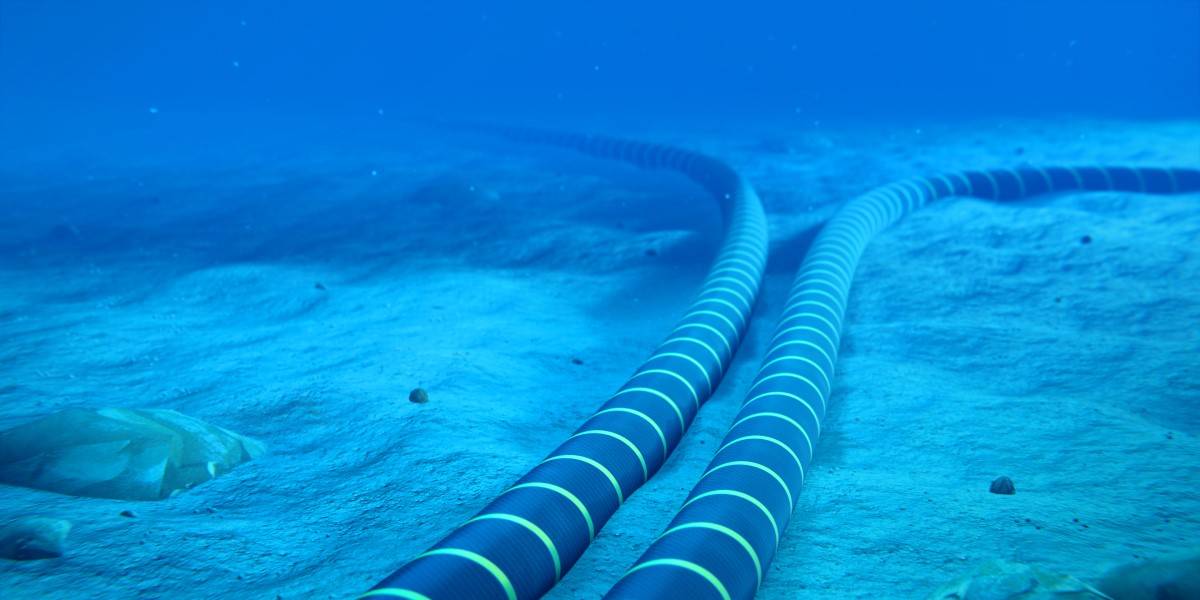Underwater Cables In Red Sea Damaged Months After Houthis Threatened To Do Just That

Undersea data cables in the Red Sea have reportedly been damaged, months after Yemeni Houthi rebels threatened to do so.
At least 15 submarine cables pass through the Bab al-Mandab Strait at the southern end of the Red Sea, a body of water just 26km wide at some points. Yemen is the Strait’s northern shore.
The first reports of damage to submarine cables off the coast of Yemen began emerged on Monday morning, with Israeli news outlet Globes claiming that four cables (EIG, AAE-1, Seacom and TGN-EA) had experienced damage. Seacom has reportedly confirmed damage to a cable it operates on a stretch between Kenya and Egypt.
"The location of the cable break is significant due to its geopolitical sensitivity and ongoing tensions, making it a challenging environment for maintenance and repair operations," Seacom said. "The team is currently working towards restoration timelines and will communicate these plans with our clients."
Globes attributed the outages to the Iran-backed Houthis, and alleged the damage was "significant, but not critical," because several other undersea cables serve the region. Seacom has already reassured customers it has re-routed traffic onto other cables.
While the world has a decent supply of cable repair ships, they are booked up well in advance so finding one ready to work is not always possible. Nor are cable repairs easy: it takes time to find and retrieve a damaged segment and reconnect it.
These repairs could be complicated by regional tensions. The Houthis have attacked civilian ships and military assets in the Red Sea since the recent invasion of Gaza by the Israel Defense Forces after terrorist attacks by Hamas.
Some shipping companies have therefore decided the risks of attacks on their assets are too high and are currently avoiding the Red Sea, a decision that extends shipping times. Peripheral vendor Logitech recently warned its supply chain would experience delays as a result of the Red Sea conflict.
Internet monitoring firm NetBlocks also said on Monday that internet access in Djibouti, the African nation on the southern shore of the Bab al-Mandab Strait, experienced a disruption on Sunday and Monday. Network engineers on a mailing list covering internet outages also said they had seen problems with cables that run through the Red Sea but reports on the list also dispute the timing of the incident, pointing out that one of the cables mentioned in coverage of the outages, EIG, has been "down for a few weeks."
Cloudflare, meanwhile, doesn't show any indication of underwater cable damage in the Red Sea on its outages and anomalies page.
A threat realized?
While it's not clear what's exactly going on with subsea internet cables in the Red Sea right now, pinning blame on the Houthis isn't entirely out of left field - the Yemeni rebels threatened to damage comms infrastructure late in 2023.
Whether the group could accomplish the feat – the undersea ops required are thought to be the exclusive preserve of nations like Russia and China - is less clear.
- What's really up with data disconnects in the deep blue sea?
- Google to lay Asia-Pacific to South America undersea cable
- Construction starts on another Asia-Europe undersea cable
- Volcano 'shredded' submarine cable, vastly complicating repair job
Rear Admiral John Gower, a former Royal Navy submarine commander, told the BBC earlier this month that it would take a more sophisticated force than the Houthis, someone with submersibles capable of locating the cables to do the deed. Someone like Iran.
"I assess it's a bluff, unless it's an attack on a terminal," Gower said.
"There is nothing I've seen in the Iranian [Order of Battle] that could touch these cables, certainly not their submarines," former Royal Navy Commander Tom Sharpe told the Beeb. While diving would be a possibility, Sharpe said he concurred with Gower that the threat was likely a bluff.
Underwater infrastructure is often threatened during international conflict. Just last week the European Commission (EC) said the security of undersea cables needs to be improved. The EC said undersea cables are vulnerable and valuable, and asked European Union nations to "grant to submarine cable infrastructures the status of the highest possible national significance."
Bad timing or not, we'll update this story as we learn more. ®
From Chip War To Cloud War: The Next Frontier In Global Tech Competition
The global chip war, characterized by intense competition among nations and corporations for supremacy in semiconductor ... Read more
The High Stakes Of Tech Regulation: Security Risks And Market Dynamics
The influence of tech giants in the global economy continues to grow, raising crucial questions about how to balance sec... Read more
The Tyranny Of Instagram Interiors: Why It's Time To Break Free From Algorithm-Driven Aesthetics
Instagram has become a dominant force in shaping interior design trends, offering a seemingly endless stream of inspirat... Read more
The Data Crunch In AI: Strategies For Sustainability
Exploring solutions to the imminent exhaustion of internet data for AI training.As the artificial intelligence (AI) indu... Read more
Google Abandons Four-Year Effort To Remove Cookies From Chrome Browser
After four years of dedicated effort, Google has decided to abandon its plan to remove third-party cookies from its Chro... Read more
LinkedIn Embraces AI And Gamification To Drive User Engagement And Revenue
In an effort to tackle slowing revenue growth and enhance user engagement, LinkedIn is turning to artificial intelligenc... Read more

